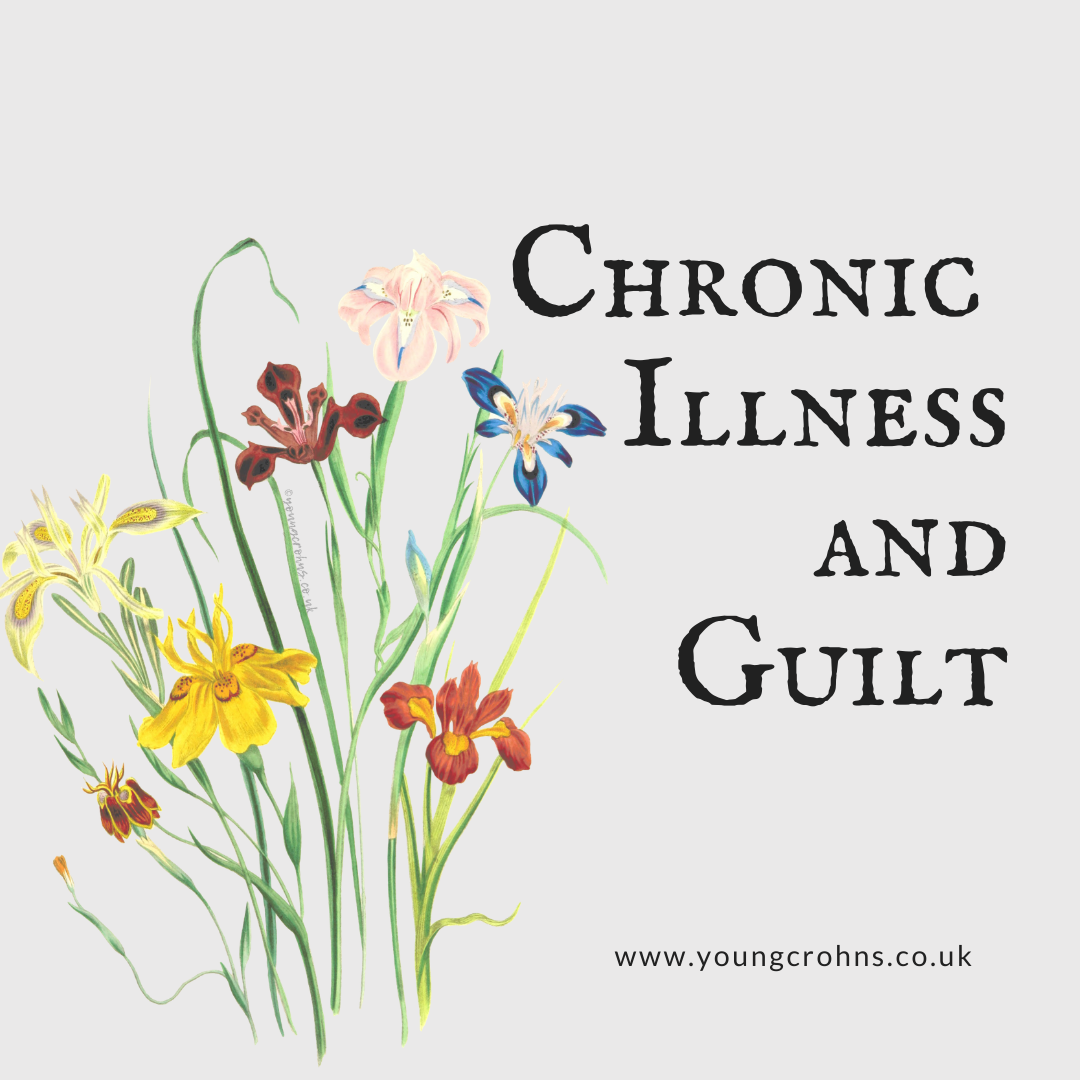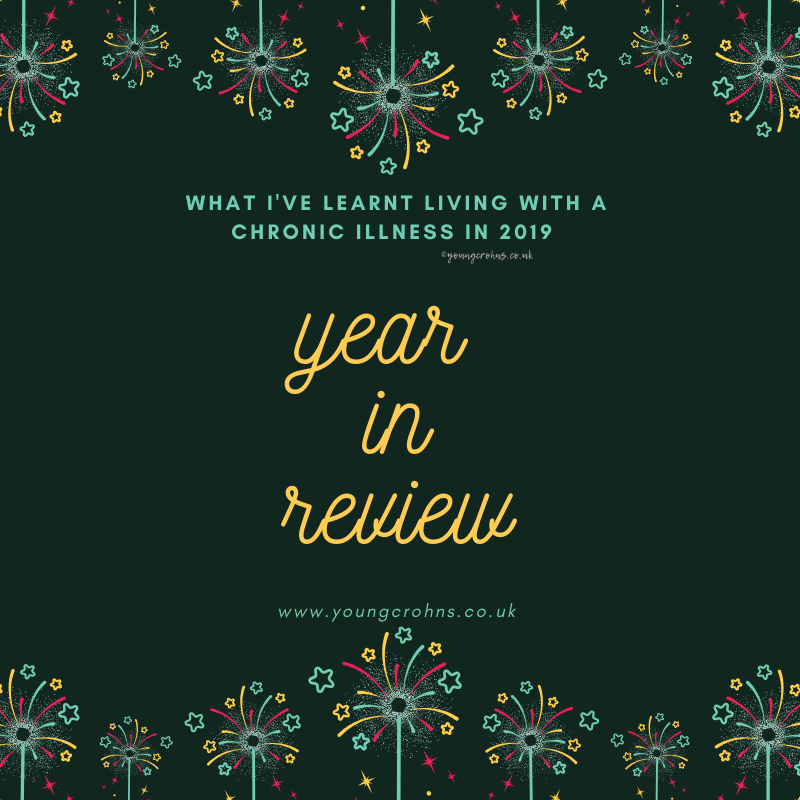
Chronic Illness & Guilt
Diagnosis of a chronic illness is just the begining of a life long struggle with acceptance and a certain loss of idenity.

I remember sitting in that doctor’s office being diagnosed with PCOS at seventeen not knowing what any of this meant. Why would I need to consider my reproduction when I was this young? I naively assumed I could just forget about it all as I chose not to have children.
Fast forward five years to being diagnosed with Crohn’s Disease – something I watched someone I loved struggle to combat and deal with without major issues – and I felt overwhelmed. Partial down to the proximity it has once had to me and the magnitude of something I know would infect all aspects of my life.
However, it had already started to do that; I had lost weight, I had lost friends and confidence, I was a shell of who I was. I had a digestive disorder that I thought at the time made me unlovable and unworthy. I felt like a number, just a patient; not a person or an individual beyond the health issue I had.
I have always felt some sort of guilt for having Crohn’s Disease.
The guilt stems from the disease’s ability to take away – at times – my freedom and flexibility to enjoy the ‘spur of the moment’. And while I do choose to live in the moment, some of my spontaneity goes when my flare ups linger or my pain increases.
With that, comes the pulling sensation to stay close to home – of feeling comfortable and able to just be – instead of pushing myself to a breaking point. It does mean I end up missing out on work and socialising at times too. These two things ensure the most guilt of all – letting people down, being unable to do my duties like I want to, feeling different, and generally missing being part of a group or a routine.
Guilt does get easier with time.
I never thought it would, but it does.
When my mental health was at it’s lowest in between my ostomy and proctectomy surgery; the greatest thing my therapist said was to be honest with those around me. It was a hard and overwhelming task in the beginning – how and when do you begin to become honest about your struggles? Who do you tell your absolute truth to? – but it was as simple as saying:
I am struggling today with [x, y or z]. I’d appreciate some help.
Or:
Thanks for bearing with me, things are difficult at the moment.
And sometimes:
Sorry I can’t make it today / tomorrow. I am finding it hard to do things beyond my energy levels. I hope you appreciate this and let’s rearrange for a later date.
In time; those closest to me, checked in with me a day or two before meeting up to make sure I was well enough to attend. Those people, ah love them to bits. And when it comes to work – I always chose honesty over ignorance. The pressure behind being ‘well’ and being employed when you have a chronic illness can be huge and a daunting thing to navigate. And when it comes to guilt for needing some time off or having a flexible schedule to attend appointments etc, that does get better as times goes on and the interaction between you and your employer grows / deepens.

Tips for feeling ‘less’ guilty
[I put less in quotes because I believe that feeling some aspect of guilt serves as a reminder of you being a human being and aware of your own fallibility.]
- REST IS IMPORTANT – the biggest contributor to guilt is not getting enough quality rest. Recouperation and recovery is what repairs and heals the body. We have an auto immune condition; it’s primary function is to respond to everything as an overreaction. So rest and recovery is so important for IBD. On meds or in remission, post op or not; it’s all the same.
- NEGATIVITY DOES NOT IMPROVE MENTAL HEALTH – it can be a downward spiral when guilt is either left unresolved or it grows beyond what you can cope with. While it is natural and normal to feel negative at times, feeling this exponentially is not good for your overall mental health.
- YOU ARE VALID – how and what you feel guilty about are valid and you do not need to explain these to anyone else. We all have things we feel some guilt over, and no two people experience it the same.
- ONLY YOU AND YOUR DOCTORS KNOW AND UNDERSTAND YOUR MEDICAL ISSUES – if your guilt is underlined by your health – either mental or phsyical – only you are in the knowledge of the full facts, making anyone else’s opinion – unless you seek them out – null and void.
- THOSE WHO MAKE YOU FEEL GUILTY ARE NOT WORTH IT – if there are people in your life who add to your guilt or pressurise you to explain or reason out your feelings, you do not need them. Support and understanding outweigh a person’s attribute more than their own ego.
Can you relate to these notions of guilt? How do you help yourself lessen their noise?
Do you have any questions or queries? Or just want to share your own experiences?
You can leave me a reply here or comment via my social media accounts – on Twitter, find my blog page on Facebook and over on Instagram

If you enjoyed this post check out Diagnosis: How I feel Five Years On and IBD and Mental Health.




1 Comments
"Can calprotectin testing be done at home?" •
03/03/2021 at 09:31
[…] enjoyed this post check out Chronic Illness & Guilt and Iron Deficiency & […]